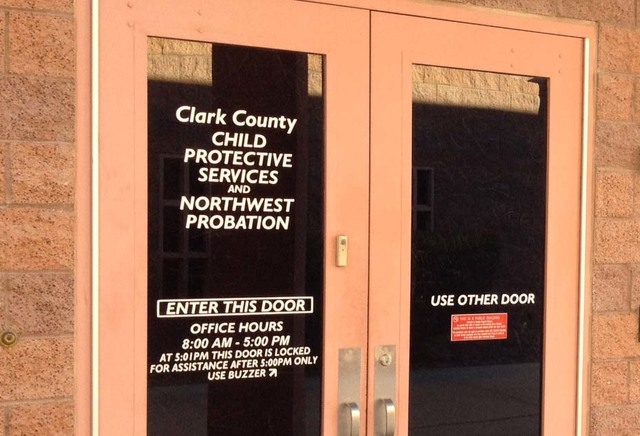Child welfare officials look to strengthen screening frequent visitors at foster homes
Some of the most significant injuries to foster children are inflicted by those child welfare agencies lack the authority to screen, according to Nevada child welfare officials.
Under its own policies, the Clark County Department of Family Services conducts background checks on people who are not residents of a foster home, but are regularly or routinely found there, said Director Lisa Ruiz-Lee. However, state law doesn’t specifically provide the authority for Nevada child welfare agencies to conduct background checks on such individuals.
“Some of the most significant injuries that we’ve had of children in foster care are not by the license holder, they are by someone who is affiliated to that license holder, whether it’s their boyfriend, girlfriend, sibling, their parents,” Ruiz-Lee recently told the Legislative Committee on Child Welfare and Juvenile Justice. “That’s really where we see issues.”
Until recently, the Nevada Division of Child and Family Services, which covers the rural areas, also ran background checks on individuals who fell into that category. But late last year, the Nevada Department of Public Safety conducted a routine audit in the rural areas and found the screening of those individuals and babysitters to be in violation of state law because state statue doesn’t provide the authority for the agency to do so, said Jill Marano, deputy administrator for the Nevada Division of Child and Family Services.
That has prompted concerns and county and state officials plan to seek changes to state law during the 2015 legislative session.
“While we do it now as part of practice, there could be a point in time in which (the Department of Public Safety) says to us we are no longer allowed to do that because we lack statutory authority,” Ruiz-Lee said at the meeting last week.
State officials in the rural areas now are only able to screen individuals who frequently visit foster homes for offenses involving child abuse, and don’t conduct the full Federal Bureau of Investigation’s fingerprint background check, Marano said.
The FBI background check provides information of criminal history in other states while the local screening only provides information on substantiated child abuse history in Nevada.
“We don’t get as much of the person’s history,” Marano said.
Changes to the law, Nevada Revised Statue 424, in 2013 allowed for background checks of most individuals affiliated with foster care agencies, but revisions don’t apply to individuals who routinely care for children and or are regularly found in foster homes, according to county and state officials.
Everyone who is 18 and older and who is a resident of a foster home must be screened, according to state statue, and at least in Clark County, officials don’t see problems with that.
Where officials run into “hiccups” is when a license holder says an individual is not staying in the foster home, but every time case workers show up, the individual is there, Ruiz-Lee said.
“Across the state we’ve had some very high-profile cases where we have children in foster care who are injured by caregivers who are regularly their caregivers, who if we had known what their history looked like, we maybe would have made different decisions about access,” Ruiz-Lee said.
Family Services doesn’t track data on foster children who are injured by individuals affiliated with a foster home license holder, said Kristi Jourdan, Family Services spokeswoman.
In Washoe County, officials run background checks on anyone who is considered a caregiver, foster parents and those who are 18 and older and who live in the home, said Alice LeDesma, Washoe County Children’s Services coordinator said Wednesday. The agency doesn’t generally run background checks on babysitters or other individuals who might regularly stay in a foster home.
Assemblyman John Hambrick, R-Las Vegas, a member of the Legislative Committee on Child Welfare and Juvenile Justice, directed Ruiz-Lee to reach out to state officials to see if there’s an executive order that could be used to make changes to state statue now so the issue doesn’t have to wait until the legislative session.
Executive orders may not be used to change, modify or amend statute, according to Tyler Klimas, spokesman with Gov. Brian Sandoval’s office said Thursday.
But will making revisions to state statute provide what child welfare agencies are seeking — a safer environment for foster children?
“I can’t say that it would prevent any sort of injury to a child, but it’s one more thing that we can use to make a good decision,” Marano said. “Obviously, it’s not a solution that fixes all the problems or all the concerns that we have, but it’s an important tool to help assess someone’s risk to a child.”
Contact Yesenia Amaro at yamaro@reviewjournal.com or 702-383-0440. Find her on Twitter: @YeseniaAmaro.






















